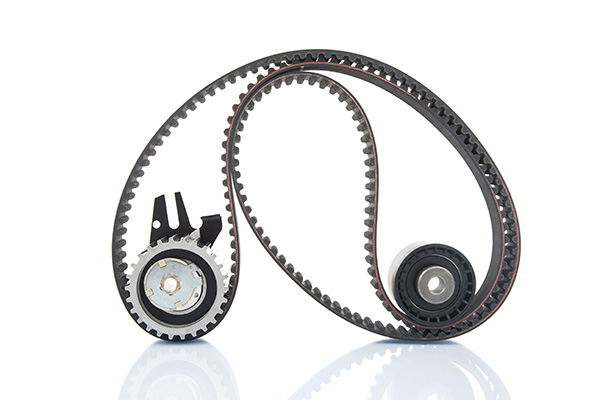
Your car’s timing belt is certainly one of the most important parts of your car's engine. This often-overlooked component is keeping your engine’s valves and pistons moving in perfect sync. Neglecting it can lead to serious and costly problems. So, why should you replace your timing belt, and what happens if you don’t?
What Does the Timing Belt Do
The timing belt acts as a synchronizer, ensuring your engine’s camshaft and crankshaft turn at the right speeds. This coordination allows the engine’s valves to open and close at just the right moments during the combustion process. If the timing is off, even by a fraction, the engine’s performance can suffer—or worse, the internal components can collide, leading to catastrophic damage.
In some engines, timing belts also power other components, like the water pump. This dual role means that a failing belt doesn’t just affect your engine’s timing. It can also impact the cooling system, further increasing the risk of damage.
Signs That Your Timing Belt Needs Replacing
Timing belts don’t usually fail without warning. Here are some signs that it might be time for a replacement:
- Ticking Noise from the Engine: A worn-out belt can cause a ticking or clicking sound as it struggles to keep up with the engine’s demands.
- Engine Misfires: If the timing is off, the combustion process can be disrupted, causing the engine to misfire or run unevenly.
- Visible Wear and Tear: If you or a technician notice cracks, fraying, or glazing on the belt, it’s time for a replacement.
- Difficulty Starting the Car: A failing belt may make it harder for the engine to turn over, especially in colder weather.
Ignoring these warning signs can lead to a snapped timing belt, which is one of the most damaging—and expensive—issues a car can face.
When Should You Replace the Timing Belt
Most manufacturers recommend replacing the timing belt every 60,000 to 100,000 miles. However, this interval can vary based on the make and model of your vehicle, as well as your driving habits.
If you frequently drive in stop-and-go traffic, haul heavy loads, or deal with harsh weather conditions like Arlington, VA experiences, you might need to replace it sooner. Always check your owner’s manual for the manufacturer’s specific recommendations, and don’t hesitate to consult a trusted professional if you’re unsure.
Why Timing Belt Replacement Is Essential
A snapped timing belt can lead to severe damage in interference engines, where the valves and pistons share the same space. When the belt fails, these components can collide, bend valves, damage pistons, or even crack the cylinder head. In some cases, repairing this damage can cost more than the car’s value.
Even in non-interference engines, where the risk of internal damage is lower, a broken timing belt will leave you stranded and require a tow to the repair shop. Replacing the timing belt as part of regular maintenance is a much cheaper and more convenient alternative.
What Happens During Timing Belt Replacement
When you bring your car in for a timing belt replacement, it’s not just a quick swap. Here’s what’s typically involved:
- Removing Components: The technician removes parts like the timing cover and accessories to access the belt.
- Inspecting Related Parts: The water pump, tensioners, and pulleys are examined for wear and often replaced at the same time to avoid future issues.
- Installing a New Belt: A new timing belt is installed to ensure it’s properly aligned and tensioned.
- Reassembling and Testing: The engine is put back together, and the timing is tested to confirm everything is running as it should.
While the process may seem straightforward, it requires expertise and precision. Incorrect installation can lead to poor engine performance or even damage.
Protect Your Engine with Preventive Maintenance
Replacing your timing belt on schedule is an investment in your car’s longevity. Regular maintenance keeps your engine running efficiently and helps avoid expensive repairs down the line. If you’re not sure when your timing belt was last replaced, it’s better to err on the side of caution and get it checked by a professional.
Don’t wait until your timing belt snaps—schedule a service today with J & F Motors in Arlington, VA. Our team will ensure your engine stays in top shape. Call us now to book an appointment!